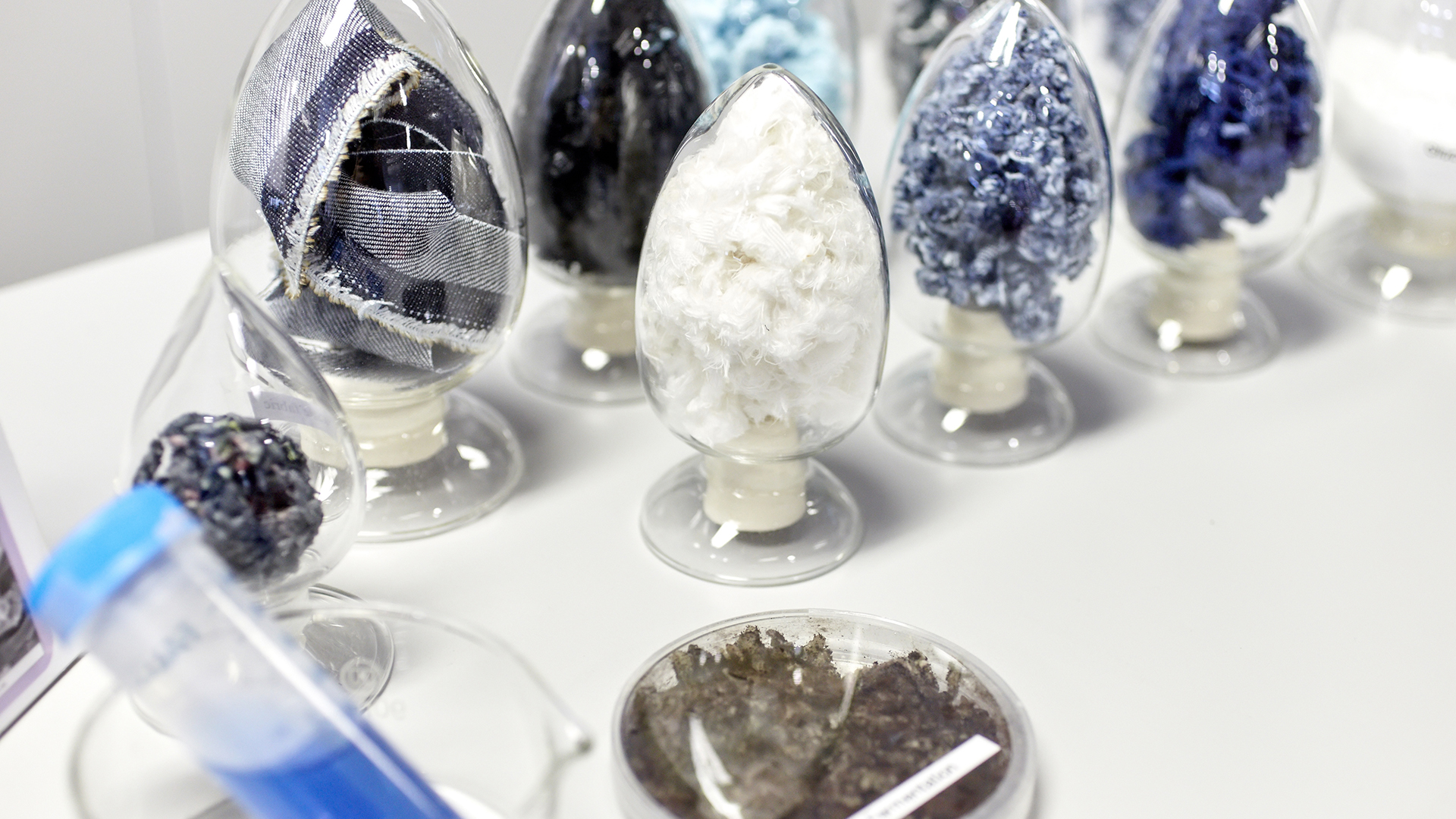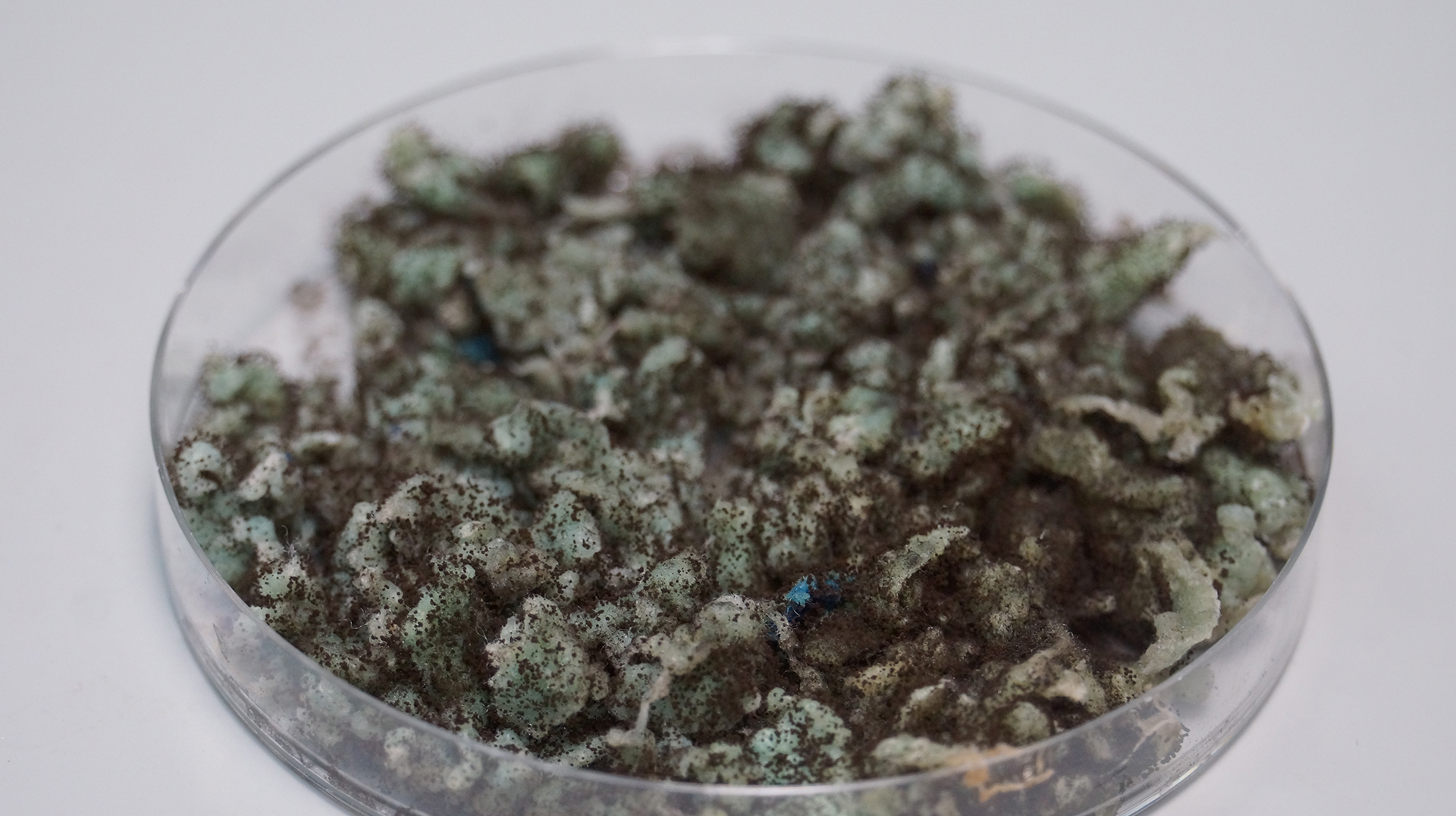Textile Waste Recycling by Biological Method
In this project, we aim to conduct the feasibility studies of textile waste recycling by biological method. We intend to recover fermentable glucose and polyester (PET) fibre from textile waste via bioprocessing. In Hong Kong, there are around 300 tons of textile waste generated daily.
Fifty-two percent of the textile waste generated is dumped into landfills. It is estimated that the current landfill sites in Hong Kong will be exhausted. Exploiting textile waste generated by the clothing and textile industry for chemical and material production could create integrated, sustainable and bio-based processes. This project will contribute to a novel approach of textile waste treatment, especially the pre-treatment and the enzymatic hydrolysis process. In addition, the feasibility of re-spin PET fibre recovered from the textile waste will be conducted.
The process consists of three main steps: 1) Modification of textile waste, 2) Enzyme production by fungal cultivation, 3) Enzymatic hydrolysis and 4) product refining. The enzymes efficiently degrade the natural fibre (i.e. cotton) in the textile waste into glucose, leaving the highly pure polyester residues for the subsequent re-spinning process.
The proposed biorefinery strategies are capable of recycling most textiles such as 100% cotton, 100% polyester, jeans, and cotton-polyester blend textiles. It provides a green technology to enable a closed-loop recycling strategy for the textiles industry by capturing the embodied value of the synthetic fibre. The bio-based products derived from textile waste can replace fossil fuel resources and eventually lead to the establishment of a sustainable and circular economy.
Get in touch with us
If you have any enquiries or comments, feel free to contact us!
* Mandatory fields
Thank you for reaching out.
We will be in touch soon.


